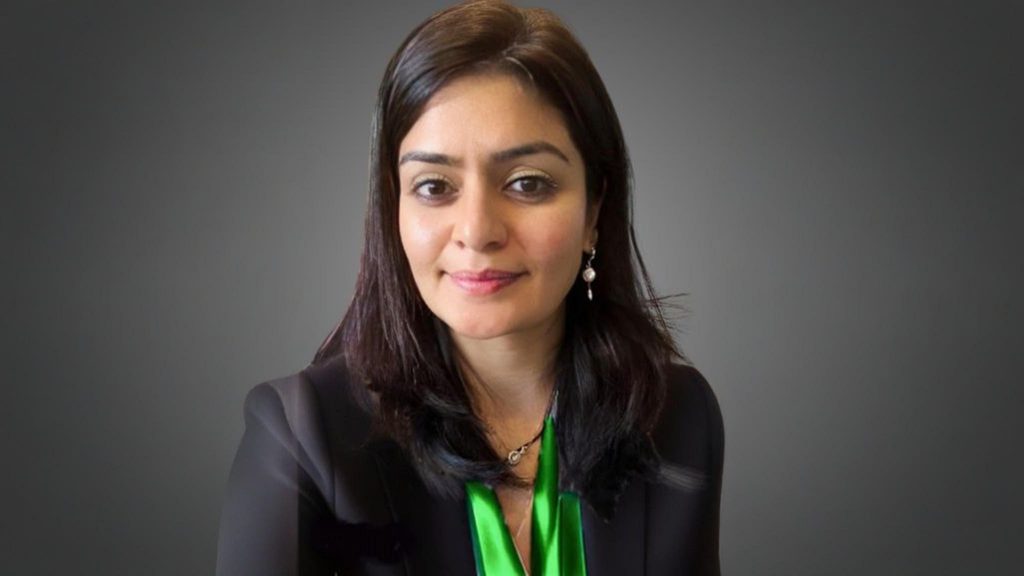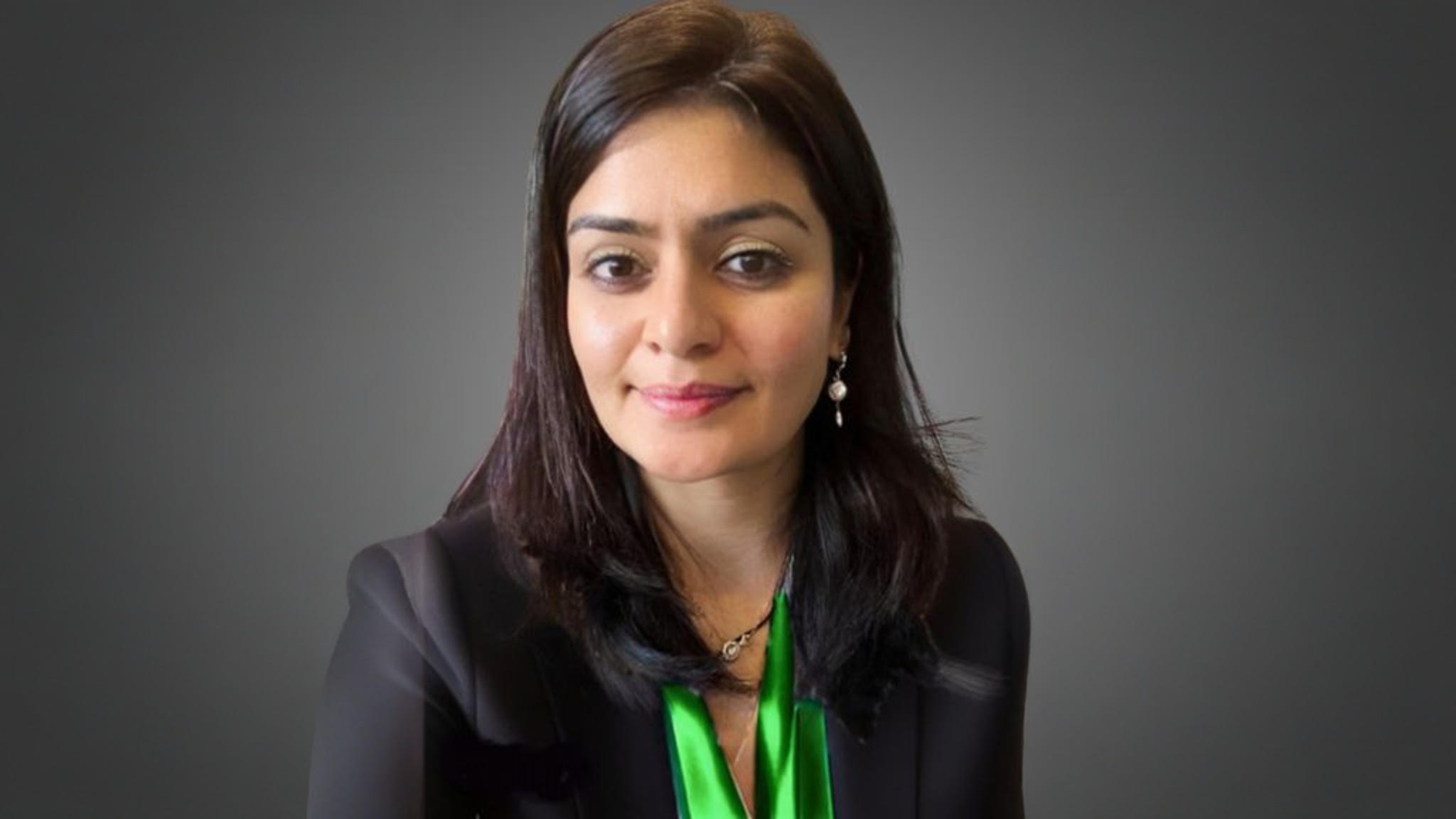This interview has been published by Namrata Singh and The SuperLawyer Team

How did you first become interested in pursuing a career in law, and what challenges you encountered during your formative years in the field, and how did you overcome them to establish yourself as a successful legal professional today? Also what inspired you to specialize in commercial litigation and arbitration?
- Believe it or not I come from a science background. I was studying to become an engineer, and was doing very well. It was somewhere towards the beginning of my +2 where I realized that, along with a strong need for intellectual stimulation, I also required my sense of justice to be met. It was the marriage of these two that got me interested in pursuing a career in law.
- The challenges I encountered in my formative years emerged from the point of view of being a first-generation lawyer. I needed to pick up various skills apart from the execution aspect, including working on people skills and the psychology of associates, seniors, juniors, clients, etc. The recruitment aspects for us first-generation lawyers are one of the most cumbersome, especially if we do not have strong financial backing. Building trust and reputation also requires an astounding amount of hard work confluenced with luck.
- Another challenge that I faced was a complete lack of guidance. However, I can say that I have found some of my best friends philosophers and mentors—in my colleagues and my clients. This definitely helps.
- It is this journey, filled with ups and downs, that has shaped me into the legal professional that I am today.
- As far as commercial litigation and arbitration go, I would say again that it was a marriage of chance and my inherent skills. I was called to work with a commercial litigation and arbitration firm after I completed my internship there. After that, I would say there was no looking back.
As someone who is dual qualified and experienced in both Indian and English legal systems, how do you navigate the nuances and differences between the two jurisdictions in your practice?
- I would say rather than navigating nuances, it forms a unique blend of expertise, enabling a comprehensive understanding of both legal systems. This comes in handy when navigating cross-border disputes.
- It also helps provide me with a broad legal perspective to identify issues early on. My specialised knowledge of commercial and infrastructure disputes allows me to provide very tailored advice to clients.
- Moreover, broadening one’s horizons also makes one appreciative of diversity, inclusion, and global perspectives, which is the only way to be successful in today’s internationally integrated business world.
You have an expertise in infrastructure and construction arbitration. How would you say these disputes are different from the usual disputes?
- Infrastructure arbitration disputes are multifaceted in many ways that other cases are not. Most other cases have a single issue or, at most, a cluster of issues surrounding one transaction.
- However, I would describe infrastructure disputes as “live” disputes. A construction or infrastructure project goes on for several years. During this time, there are several thousand correspondences that are exchanged.
- There are usually several hundred, if not thousand, complex issues concerning the interpretation of ten to fifteen clauses of the contract together.
- A lot of these contracts are based on FIDIC models, sometimes called the “Rainbow” suite, which in itself is a contract that, at first glance, appears quite complex. This is due to the different coloured covers of the model contracts, for nstance, the FIDIC White Book for the consultancy model agreement, the Red Book for Construction, Plant & Design-Build & EPC/Turnkey Contracts, etc.
- Apart from the above, in cross-border infrastructure disputes, there can even be a pinata of parallel proceedings just waiting to explode the moment a proceeding is started.
- Moreover, a quandary of technical issues would require the engagement of expert witnesses as well as factual witnesses. Expert witnesses are often key to winning disputes. Finding a good expert means that such a person’s technical knowledge on the issue cannot be shaken in any cross-examination. Usually delay and quantum experts are employed, but some issues require more nuanced expertise.
- This is why I believe it is necessary to pre-empt issues and for clients to be involved with experienced counsels right from the contract correspondence stage.
With your extensive experience in handling disputes related to bank guarantees, what advice would you give to companies to mitigate such risks effectively?
- The key to mitigating bank guarantee risks is to understand the ground reality of when an employer threatens to invoke a Bank Guarantee. This threat arises when the employer loses confidence in the contractor’s ability to fulfil contractual obligations, say due to delays, defects, too many disputes, etc.
- At the stage when the invocation is a threat, it is important to immediately rush to legal experts well versed in the field. From this stage on a meticulous review of the underlying contract and the Bank Guarantee is required. Potential breaches, the existence of disputes, and evidence supporting the client’s position need to be documented to gain a detailed understanding.
- After this, communication must be opened with the employer with a strong legal background and preparation. A middle ground needs to be found. Ultimately, re-tendering is an expensive proposition for an employer, and if the cost of having the client cure breaches is less than re-tendering and employing a new contractor, middle ground can usually be found.
- During the communication stage itself, it is imperative to continue the background work of collecting supporting evidence due to the impending next stage.
- In case mutual ground cannot be found and the employer insists on invocation, it is important to immediately move the court or emergency arbitrator to obtain a stay on invocation.
As an empaneled arbitrator, what do you believe are the key qualities required to effectively adjudicate disputes and maintain neutrality throughout the process?
- I would say key qualities include a thorough grasp of the subject matter and legal principles; adept problem-solving abilities; meticulous attention to detail; impartiality and neutrality; strong communication and time management skills; and organisational acumen, all of which are essential for ensuring a seamless arbitration process.
- In instances of international or domestic arbitration or mediation where significant cultural differences exist among the parties or between the parties and arbitrators, it is crucial for an arbitrator to be sensitive to these differences and remain adaptable. This underscores the importance of diversity and inclusion in arbitration.
- Furthermore, an arbitrator must possess a comprehensive understanding not only of the technical aspects but also of how to draft an award that can withstand challenges, such as those under Section 34 or Section 37. Achieving this level of proficiency requires extensive training in crafting well-reasoned awards and a solid grasp of the grounds for challenging an award. By continually refining these skills and adapting to the evolving landscape of arbitration, an arbitrator can effectively meet the demands of the role.
- I would also like to add that for specialised disputes such as construction, maritime, or infrastructure disputes, arbitrators with prior experience in these fields are much needed. Sometimes parties overlook these issues in technical matters, and these mistakes cost clients dearly.
In the realm of construction disputes, what kind of issues usually arise, what strategies do you find most effective in pre-emptively addressing potential conflicts and mitigating the risk of disputes during project execution?
- The main problem in construction disputes arises from how tendering is done. The contractor with the lowest price usually wins. The terms of these contracts are quite onerous to the contractors, but they feel the need to make at least some profit.
- The claims in construction contracts usually find their way in “variations”, “change of scope” and other changes to work. Claims also centre around rectification of Defects, eg. works not being in compliance with technical specifications, extension of time claims, centred around delay events causing critical delays in projects, basically having a ripple effect on time and cost, disruption, and acceleration issues.
- One key strategy I have found works in construction disputes is the quality of correspondence. When the client notices that the other side has suddenly increased the quantity of correspondence or that the quality or tone of the correspondence has changed, they should expect that the other party has engaged someone like us for a certain impending issue. It is at this stage that the client should pre-empt disputes and address potential conflicts by engaging and developing effective strategies with their counsel early on in the dispute.
- Often, it is mistaken that only the letters in a dispute are important. However, the multitude of emails exchanged and, of course, the messages exchanged on WhatsApp or chat give away certain key defaults on the part of the client.
- Therefore, it is very important to have a legal expert on board from the outset.
With your background in international and domestic arbitration, what do you think are the emerging trends in dispute resolution, and how are they shaping the legal landscape?
- It goes without saying that one of the key trends is Online Dispute Resolution. It is receiving increasing acceptance and adoption.
- The legal profession used to be known for its resistance to change and holding on to traditions. The pandemic broke through the resistance of lawyers, judges and arbitrators against being online.
- In today’s world, once dispute resolvers master the richness of the use of more creative models of dispute resolution, it brings about a lot of flexibility. Clients now have access to the best legal minds across the globe at the click of a few buttons.
- Additionally, ODR and increased technology adoption are cost-effective and sustainable dispute resolution methods.
- If these new trends are properly leveraged, it is a win-win for all stakeholders.
Beyond your professional pursuits, do you have any personal hobbies or interests that you find complement or enrich your legal practice?
- Personally, I feel there is a need for legal professionals to disconnect from the chaos for some time each day and practice mindfulness exercises.
- Apart from that, I also advocate some form of movement, such as exercise, which helps lower cortisol levels.
- I also enjoy activities such as painting or other creative pursuits, which help me relax from the highly problem-solving and compulsive nature of our profession.
You’ve been recognized for your work in advising startups to Fortune 500 companies. Can you elaborate on the specific challenges and opportunities you encounter when providing legal counsel to such a diverse range of clients?
- I would say tailoring legal advice to suit the specific needs and resources of each client. Startups often operate on limited budgets and may require more cost-effective solutions, while Fortune 500 companies typically have more complex legal needs and resources to address them.
- Startups are often at the forefront of innovation, requiring legal counsel to be proactive and creative in addressing novel legal issues. On the other hand, Fortune 500 companies may require in-depth knowledge of specific regulatory frameworks and industry standards, which can be intellectually stimulating and rewarding.
- Being a chameleon to suit the needs of the client is key.
lawyers and arbitrators who aim to make a significant impact in the profession? Considering your extensive experience and achievements in the legal field, what advice or tips would you offer to the upcoming generation of aspiring
- One thing is that the current legal industry, or, I would say, the big guns, remain old-school in their practices.
- However, today, the traditional methods of working or rainmaking will not stand the test of time. There is a need to recognise that the legal industry is evolving and that the traditional linear path is no longer ideal to settle into and retire from.
- The upcoming generation needs to understand what drives them and to latch on to that passion. This informed passion should guide their big picture worldview, which does not need to be restricted to the traditional models of legal areas.
- Aspiring lawyers and arbitrators must appreciate that we each need to embrace our own unique qualities and drive our own course in the legal profession. We no longer need to be limited by inherited models of law practice.
As a recipient of the “Pioneering Women Leadership Award,” what initiatives or changes would you like to see in the legal profession to promote greater diversity and inclusion?
- Despite the diversity seen in law schools today, I see that it is not translating to the legal industry as much as one would like. There is a clear disconnect.
- Structural issues are present with many law firms. There is an urgent need for diversification in the legal profession. Representatives of various communities, having a diverse set of values and experiences, enrich any solution that a legal professional is trying to look for.
- It would truly be foolish to have all this talent and not utilise it to its fullest potential.
- Therefore, it is very important that the government, the bar, the bench, and large established firms avoid monolithic defence mechanisms that prevent diversity. Steps need to be taken to promote diversity, not due to an obligation but from the recognition of a compelling business need.
Get in touch with Gunjan Chhabra-
























